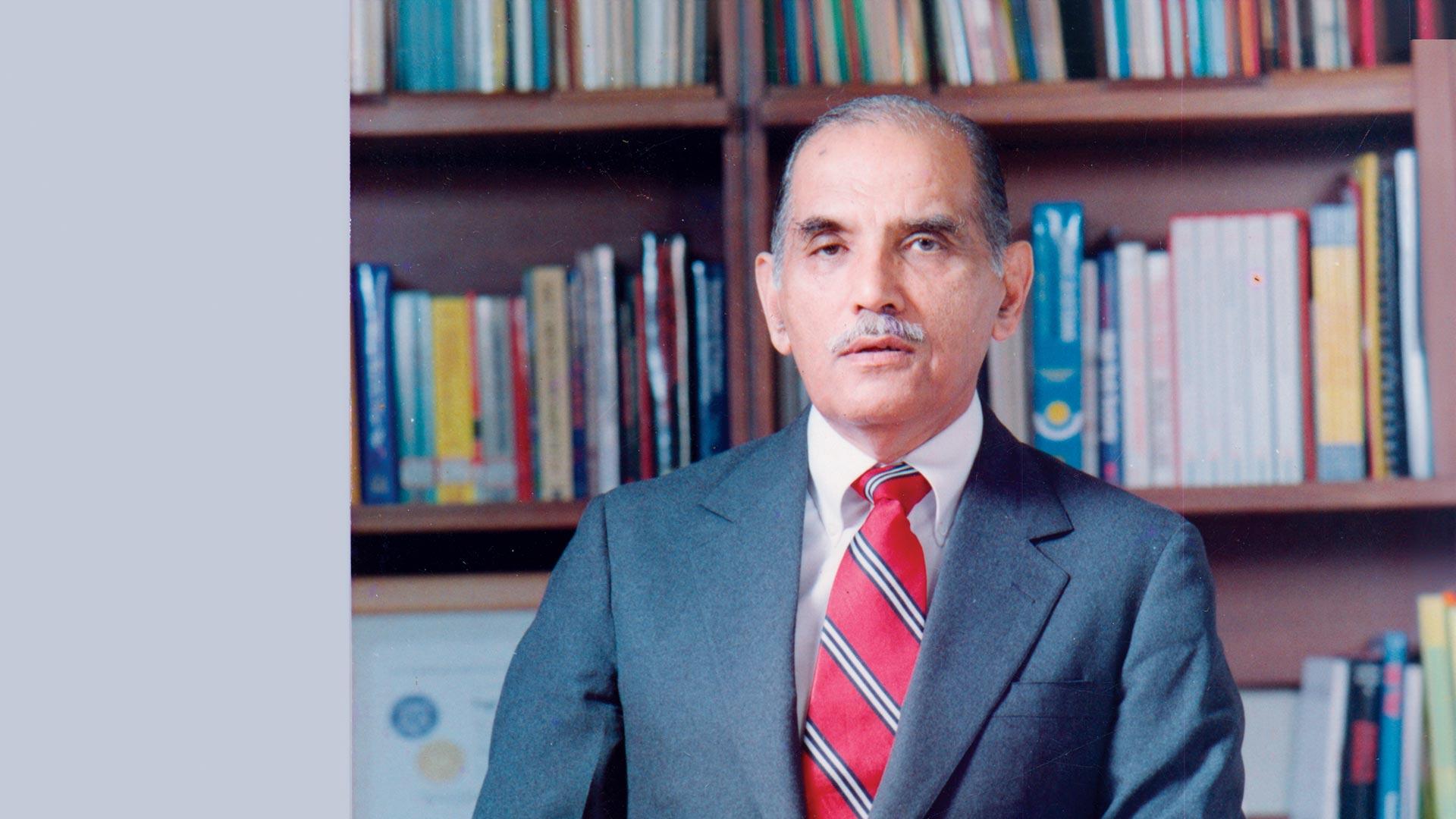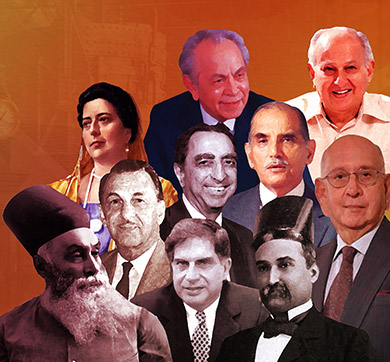May 2024 | 868 words | 3-minute read
In 1975, at a time when IT was a little-known concept in India, Faqir Chand Kohli or FCK (as he is popularly known) addressed the Computer Society of India, prophesising the role that it could play in building the nation. “Many years ago, there was an industrial revolution; we missed it for reasons beyond our control. Today, there is a new revolution — a revolution in information technology,” said the IT pioneer, who helped set up Tata Consultancy Services (TCS). “If we miss this opportunity, those who follow us will not forgive us.”
It was this unique perspective and unwavering rigour that made Mr Kohli that rare technocrat with the temerity to venture beyond the known frontiers of knowledge, leading India firmly into the then unknown IT future.
A powerhouse
Born in 1924, in Peshawar, Mr Kohli acquired degrees in English, applied mathematics and physics from Punjab University. He later studied electrical engineering in Canada and pursued a master’s degree in system engineering at the Massachusetts Institute of Technology in the US.
In 1951, he returned to India and worked at Tata Electric Companies. The Power Grid Corporation of India is the product of his 1963 paper, in which he recommended that the government invest in 400KV or 500KV transmission lines to build a national power grid to achieve maximum efficiency and economy.
His greatest contribution to India’s power sector is the setting up of a digital-based load dispatch and system management network for electric power at Trombay. This was at a time when the UK and France were still on analogue.
“Today, there is a new revolution — a revolution in information technology. If we miss this opportunity, those who follow us will not forgive us.”—FC Kohli
In 1951, he returned to India and worked at Tata Electric Companies. The Power Grid Corporation of India is the product of his 1963 paper, in which he recommended that the government invest in 400KV or 500KV transmission lines to build a national power grid to achieve maximum efficiency and economy.
His greatest contribution to India’s power sector is the setting up of a digital-based load dispatch and system management network for electric power at Trombay. This was at a time when the UK and France were still on analogue.
The TCS era
Mr Kohli’s work in the power sector was making waves in 1968 when TCS was established, and JRD Tata lobbied hard to bring him onboard to steer the ship. A year later, Mr Kohli joined TCS. At the time, there was no IT industry to speak of. Mr Kohli was instrumental in developing the methods, human resources and the very ecosystem of the industry that contributes to ~8% of India’s GDP today.
First, he recruited the most promising engineers, chartered accountants, and science and maths postgraduates, among others. In later years, Mr Kohli and the TCS team collaborated deeply with IITs, IIMs, and hundreds of engineering colleges for faculty development, curriculum modernisation and R&D collaboration.
Second, he sought prospective clients in India and abroad. In India, initial assignments included bank reconciliation services, payroll and accounting. Globally, Mr Kohli convinced companies that TCS could help them achieve better efficiency through new software solutions. From delivering a financial accounting solution for a UK housing society — the first full software development lifecycle project — to winning a contract with the Institutional Group Information Corporation that fully leveraged the onsite-offshore model, the TCS team delivered results. Other prestigious projects included those for the Swiss Securities Clearing Corporation and the National Stock Exchange. Customers appreciated the quality service at a compelling cost, even more so after the 1973 OPEC oil crisis. This set the stage for the establishment of TCS in the UK and North America.
“He was a true legend, who laid the very foundations for India’s spectacular IT revolution and set the stage for the dynamic modern economy we enjoy today. … His enduring optimism and his ability to make ambitious bets leaves a legacy — one that has advanced a nation.”—N Chandrasekaran, Chairman, Tata Sons
Mr Kohli never took his eyes off the vision — to modernise the Indian economy using computers. He deputed ~20% of TCSers on domestic projects, that were less than 10% of the revenue, believing Indian engineers shouldn’t only work for global MNCs, thereby depriving India of their services. Today, if India’s biggest public and private services and organisations are digital forward, it is largely due to the efforts of Mr Kohli and his team.
In the 1990s, when the Y2K problem loomed large, Mr Kohli saw an opportunity. TCS processed and fixed 700 million+ lines or ~30% of the global code, leading to a revenue influx. In 2018, TCS crossed $100 billion in market capitalisation — the first listed Indian company to do so — and is now ranked the world’s second most valuable IT services brand by Brand Finance.
Building people
Though Mr Kohli retired in 1999, he had mentored leadership within the company, including N Chandrasekaran, Chairman, Tata Sons. In his book, The TCS Story & Beyond, S Ramadorai, who took over from Mr Kohli, wrote, “It was Kohli’s style to throw a problem at you. The more problems you solved, the more were thrown at you. This thorough grounding gave people the confidence to sometimes even take on new challenges on their own … Kohli was passionate about turning us into world-class professionals.”
In 2004, when TCS’ IPO was oversubscribed, Mr Ramadorai acknowledged that investors were not buying “our campuses, our software or our mainframes. They were ‘buying’ our collective knowledge, skills, ideas, and talent.”
This was yet another example of Mr Kohli’s visionary zeal, which, combined with his fierce intellect and uncompromising standards, helped TCS — and India — gallop ahead to become a leader in IT services.
—Anuradha Anupkumar































